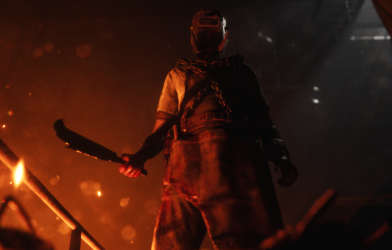Ten years ago, the recipient of Game of the Year at Geoff Keighley’s inaugural The Game Awards was Dragon Age: Inquisition. This might come as a surprise. While it was well received at the time, sold well, and remains beloved by many fans, Inquisition occupies an awkward spot in gaming culture.
In 2014, it was overshadowed by noisy online sensations like Hearthstone and Destiny; the following year, it was fully supplanted as the standard-bearer for epic role-playing games by The Witcher 3. It also sits firmly in the shade of what happened next to its developer, BioWare, which spent the subsequent decade wrestling with the failures of Mass Effect: Andromeda and Anthem, and struggling to keep development of a Dragon Age sequel on track. Inquisition is not forgotten, exactly, but nor has it taken a permanent spot in the gaming canon. It’s just a game that came out once and that some people played.
So it might seem odd to predict that the Dragon Age series is about to win its second consecutive GOTY. But, while I am not quite ready to do that — that will have to wait until we see reviews for Dragon Age: The Veilguard, which has an Oct. 31 release date — the truth is that the stars are perfectly aligned for BioWare to repeat that feat. At this stage, Game of the Year is The Veilguard’s to lose.
First, consider that a new Dragon Age game has a natural advantage at The Game Awards, and not just because the series has won before. As I laid out in my analysis of what makes a Game of the Year, TGA’s voting jury has a very strong inclination toward single-player games in either the RPG or action-adventure categories, preferably with strong narrative and performance elements, and preferably with AAA production values. Dragon Age: The Veilguard ticks all those boxes. It’s also a more comfortable proposition for the jury than some of the other 2024 games that tick the same boxes, like Capcom’s unusual and divisive Dragon’s Dogma 2. If it reviews well enough — The Game Awards’ large jury is mostly composed of critics from the games media — it should easily secure a GOTY nomination.
Secondly, most of The Veilguard’s competition has some kind of asterisk against it. Final Fantasy 7 Rebirth, the current frontrunner, is already fading in the memory; it was released in February, and it didn’t sell spectacularly well. Astro Bot is a critical darling, but as a story-free, family-friendly platforming romp, it belongs to a genre that TGA historically doesn’t take that seriously. The Legend of Zelda: Echoes of Wisdom is a minor entry in the series with a slightly wobbly critical reputation — its Metascore of 85 is dangerously low for GOTY contention. Atlus’ Metaphor: ReFantazio is a forthcoming RPG with fantastic buzz, but it’s a game by a developer operating deep within its niche rather than appealing to a wider audience, as most GOTY winners have done.
As if that weren’t enough, other potential contenders have vacated the frame. Indiana Jones and the Great Circle’s December release date is after TGA’s cutoff. More significantly, Assassin’s Creed Shadows has been delayed into next year. Whether or not it would have been a likely GOTY nominee, it would have competed strongly with The Veilguard for media coverage and mindshare in the final months of 2024. In terms of AAA single-player games, BioWare and publisher EA now have an almost completely clear run this fall, with no rivals to speak of.
In fact, Dragon Age: The Veilguard’s biggest rival, and perhaps the biggest external roadblock it faces on its path to GOTY, is not a new release but a former winner. Baldur’s Gate 3 won GOTY in 2023, was universally acclaimed by critics, and redefined what many players expect from a traditional fantasy RPG. Its hardcore game mechanics, strong links to tabletop gaming, and emphasis on player freedom captured the moment, while the Dragon Age team seems to have taken its series in the opposite direction with The Veilguard, marketing it with a slick, more action-focused style. Baldur’s Gate 3’s runaway success is probably a good thing for The Veilguard overall — it’s proven that a large audience hungry for meaty RPG campaigns still exists. But, in terms of its GOTY chances, the jury is bound to be measuring The Veilguard’s achievements against those of a game that many are happy to call a masterpiece. Baldur’s Gate 3 casts a long shadow.
Dragon Age: The Veilguard looks good; we’ve been very encouraged by what we’ve played so far. When reviews hit, we will know whether it is likely to win Game of the Year. If it achieves a Metascore of 90 or more, it would be foolish to bet against it. There are very few obstacles to The Veilguard repeating the trick Inquisition pulled off in 2014. It just needs to be good.








Comments are closed